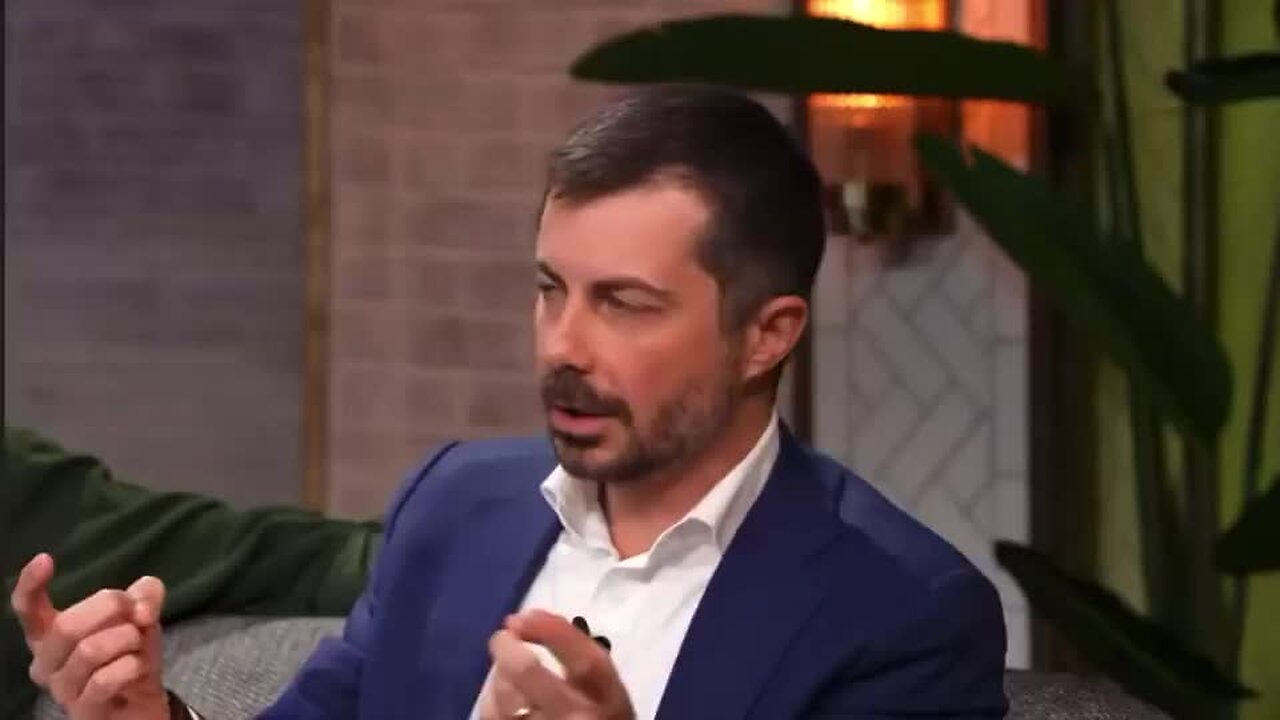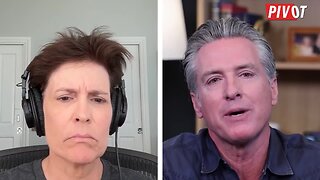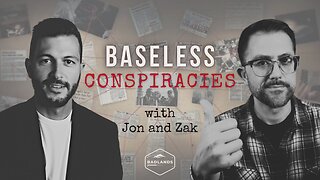Premium Only Content

Buttigieg Calls Out ‘Societal Problem’ of Getting Your News from ‘Some Dude on the Internet’ While on a Manosphere Podcast
Buttigieg: “So — but — but the real thing is, we don’t trust the people who are supposed to be interpreting the data. And that is like a societal problem. It’s not just politicians, right? It’s an erosion of trust in every institution where somebody is supposed to help us make sense of this. And, you know, I come out of the local, right, where we’re a little more connected to reality, because if — like, if the roads are in shitty condition, and I’m the mayor, and I can produce some statistics saying that the roads are great, people can call me out and say, ‘No, they’re not. Like, I drive on these roads all the time, and they’re not.”
SCHULZ: “And they’re going to see you at the supermarket.”
Buttigieg: “And they will find me, and they will tell me what they think of the condition of our roads, right? You get up to the national level, and you’re so removed from that —”
SCHULZ: “Yeah.”
Buttigieg: “— that you start to get into these, like, alternate reality zones. And then you add to that the fragmentation of where people get their information, because there isn’t the —”
SCHULZ: “Yeah.”
Buttigieg: “— you know, Walter — the famous example is Walter Cronkite, right?”
SCHULZ: “Yeah.”
Buttigieg: “— Like, everybody in the 60s, like, turns on Walter Cronkite. And it’s not so much that he told people what to think, it’s that he laid out a certain set of facts, certain set of things that happened. Everybody, they could argue over what it means, but they — they would generally agree on what just happened.”
SCHULZ: “Right. Right.”
Buttigieg: “And we don’t even have that.”
SCHULZ: “Yeah, we’re in the echo chambers, and the algorithms are just making those echo chambers more extreme.”
Buttigieg: “So the algorithms are even worse. I mean, the other problem —”
SCHULZ: “Yeah.”
Buttigieg: “— I would say is, like, we no longer have the access to the editorial function, by which I mean, like, a professional news organization. I — like, I used to get so mad at — at every, from the ‘South Bend Tribune’ to ‘The New York Times.’ There were times that I was so pissed over a story or framing or whatever. But I will say, if I actually found that they got something actually factually wrong and showed it, they would correct it. Like, there is that ethos.”
SCHULZ: “Ah, no. There is no.”
Buttigieg: “And, you know, like, professional journalistic organizations have to do that.”
SCHULZ: “Mm-hmm.”
Buttigieg: “But if we’re in a world where somebody weights, like, what some dude on the Internet says, the same, as a — as an organization where there are people who have to hold to journalistic standards, if that’s the same, that dude on the Internet doesn’t have to issue a correction. He doesn’t even have to reveal, like, who he is, right?”
SCHULZ: “Yeah.”
Buttigieg: “I think there’s a lot of people looking at their feeds, and those two things seem equal.”
-
 0:13
0:13
Grabien
1 day agoNewsom: ICE Will Show Up at Voting Booths to ‘Chill’ Voter Participation
42 -
 42:55
42:55
Stephen Gardner
1 day ago🔥Trump’s SURPRISE Move STUNS Everyone - Democrats PANIC!
83.6K110 -
 1:37:19
1:37:19
Badlands Media
14 hours agoBaseless Conspiracies Ep. 148: The Delphi Murders – Secrets, Setups, and Cover-Ups
33.7K15 -
 5:59:05
5:59:05
SpartakusLIVE
8 hours ago#1 MACHINE Never Stops The GRIND || LAST Stream UNTIL Friday
138K1 -
 28:36
28:36
Afshin Rattansi's Going Underground
1 day agoDoug Bandow: ENORMOUS DAMAGE Done to US’ Reputation Over Gaza, Trump ‘Easily Manipulated’ by Israel
22.6K29 -
 2:45:13
2:45:13
Barry Cunningham
14 hours agoCBS CAUGHT AGAIN! CHICAGO A MESS! LISA COOK IS COOKED AND MORE LABOR DAY NEWS!
102K49 -
 6:39:17
6:39:17
StevieTLIVE
8 hours agoMASSIVE Warzone Wins on Labor Day w/ Spartakus
27.2K1 -
 10:46:42
10:46:42
Rallied
14 hours ago $16.84 earnedWarzone Challenges w/ Doc & Bob
197K4 -
 3:26:25
3:26:25
Joe Donuts Live
7 hours ago🟢 Lost in Space with My Clones: The Alters Adventure Begins
35.4K5 -
 7:20:22
7:20:22
Dr Disrespect
16 hours ago🔴LIVE - DR DISRESPECT - TRIPLE THREAT CHALLENGE - WINNING AT EVERYTHING
222K12